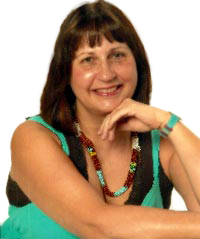I heard a hard truth a few weeks ago. Harder because it was about my second book. The one that has consumed me for more than two years and to which I have given freely my heart and soul. I believe every word I have written in this book but this week I found out that that is not enough. In fact, it is such a small part of enough that the book world smirks.
I thought I had finished my book and that soon it would be read to small minds who would grow to adulthood and feel better about themselves because of it. Better than I had growing up. I knew the book business was hard but did not realize until now how little the words in the book had to do with anything. No, that’s wrong. The words have everything to do with everything, just not in the way I had thought. According to my truth-teller, I have to make my words convey one thing to publishers – this book can make you money!
This realization sent me spiraling down into my awful place. It is not where I want to ever be but it’s my default place. This is not feeling sad about something that has happened in my life. It is far worse than that. It is a place I first visited when I was thirteen. For no reason. “There’s no reason to feel like this,” “You have a family that loves you”, “You have friends… School’s going well…. Snap out of it.” I heard it all.
I grew tough. I grew up. I had to in order to cope. Life with depression can feel very lonely and even at times of great joy, it always lurks in the shadows. Depression tilts the world so that those who have it always walk uphill and it doesn’t take much to slide down. I have tools and today I forced myself to use the simplest one. The mindless one. All I had to do was get dressed and put on a pair of running shoes. For the first kilometer, I was painfully aware of the sidewalk beneath my feet and the plodding. Left, right. Left, right. And then they came.
Thought after thought. Idea after idea. Billowing out from me like dandelion’s seeds exploding into the air with the first winds. Both my thoughts and the dandelion’s seeds had no idea they were ready to release until the moment that they were. I felt a sense of separateness, watching in awe and marveling at the clarity and sheer brilliance of each idea. I could think this way about these thoughts because I had no part in formulating them. This process had clearly happened beyond my consciousness and must have been brewing for days because each idea was so complete and directed with perfect precision at my problem.
I felt anxious that I would forget but now that I had them within my conscious grasp, I repeated them as I ran, trying as hard as I could to commit each one to memory so I could write them down as soon as I got home. In such a short time, my belief that there was only one way to see my problem was thrown on its head and I was able to see it from a completely different perspective. I allowed myself to absorb the lesson. Chaos feels terrible, tumultuous, confusing and depressing but out of chaos and because of chaos a new understanding is born.
As I neared home, I felt the sun warm on my body and the cool breeze flowing through my hair. I heard the birds singing. My sad place was the shadow under a tree. I wished it well but for now, I was happy to be climbing the hill once again.







